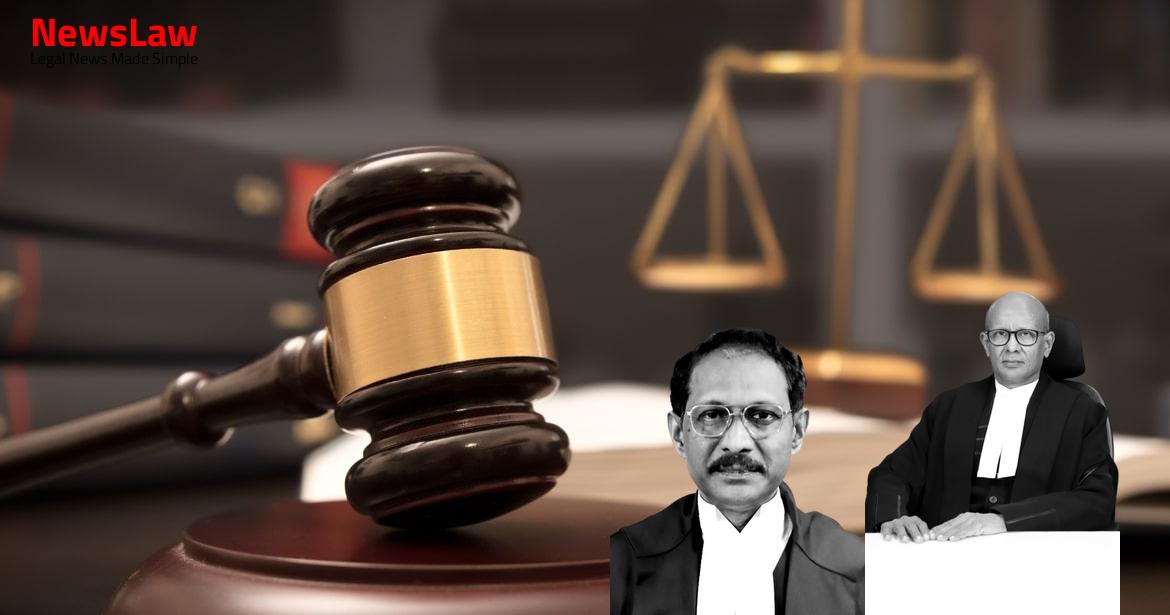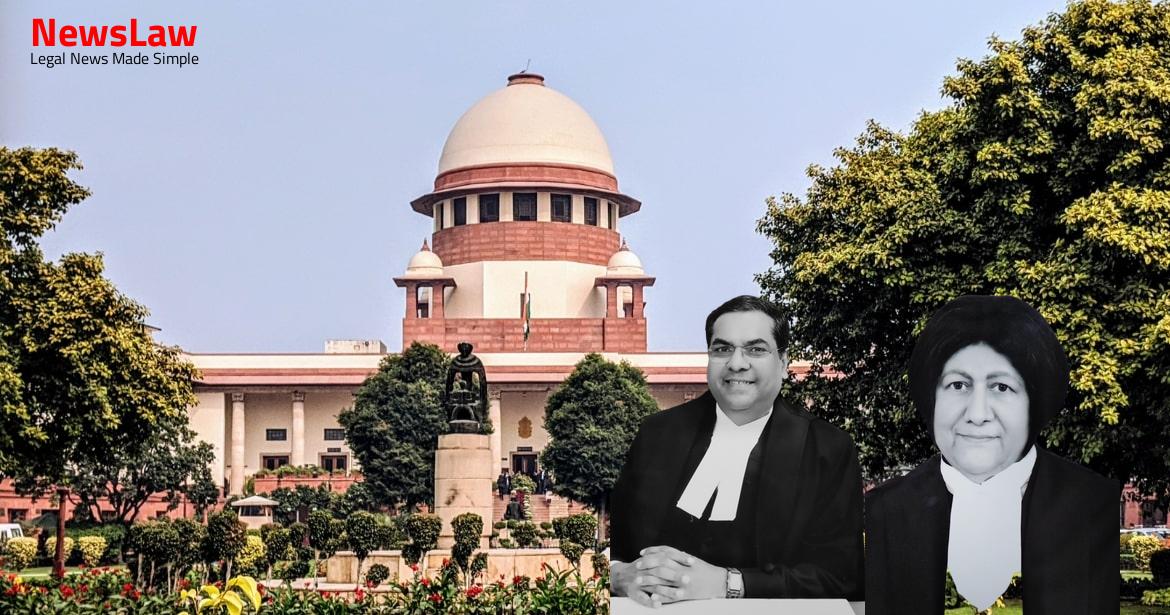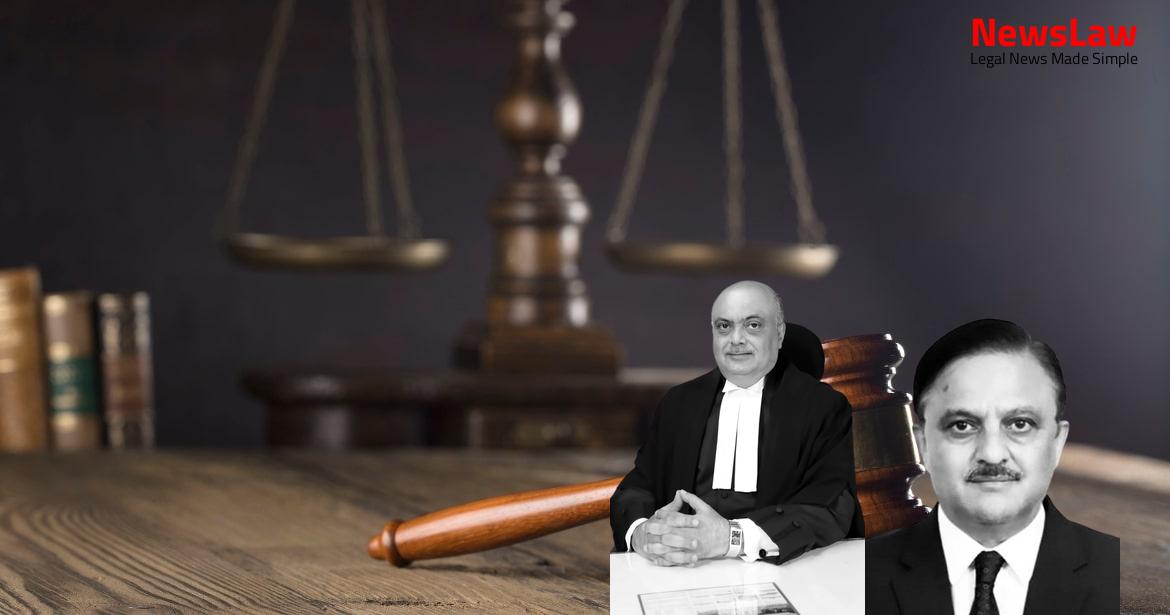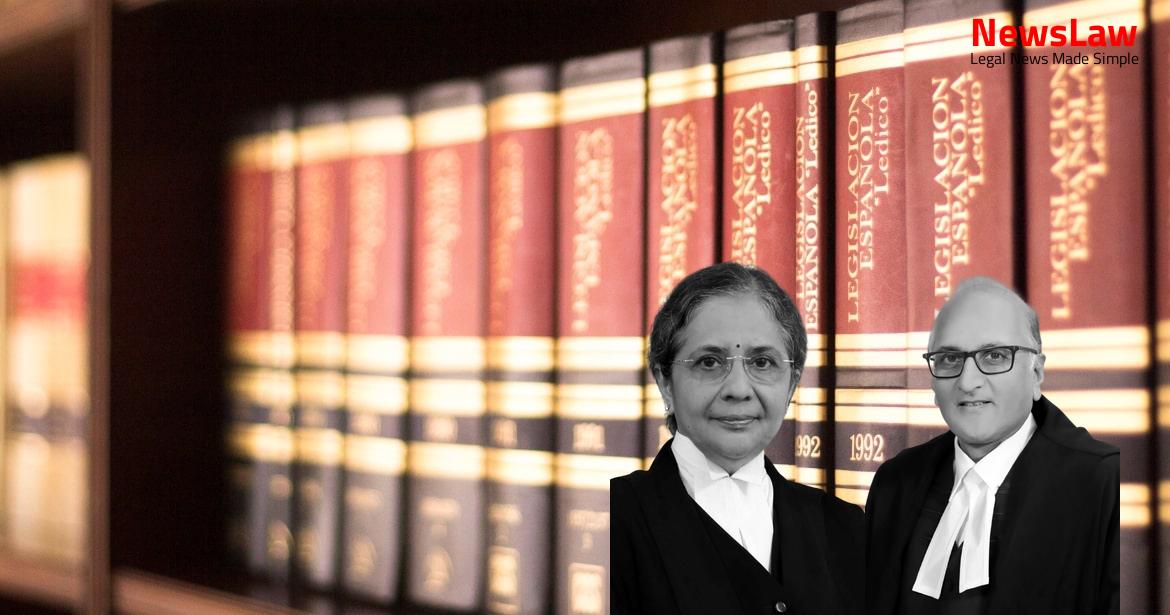In a significant ruling by the Supreme Court of India, the case involving marital discord sets a new precedent for upholding human rights and dignity. The judgment focuses on facilitating reconciliation and restoring peaceful domesticity amidst disputes. The court’s decision aims to promote mutual respect and affection, ensuring a fair trial for all parties involved.
Facts
- Complaint Case No.1100 of 2021 reveals the distrust and discordancy between the appellant and the second respondent leading to divorceable situation.
- Appellant filed a petition for dissolution of marriage before the Family Court, Bhagalpur.
- Second respondent filed the Complaint Case No.1100 of 2021 against the appellant alleging offenses.
- Application for anticipatory bail was moved before the High Court after the dismissal of the earlier application.
- Appellant also moved an application for pre-arrest bail before the Court of Sessions Judge, Katihar.
- Counsel for the State supported the contentions raised by the second respondent.
Also Read: The Sentencing Dilemma: Supreme Court’s Decision in the Case of Attempted Murder Conviction
Analysis
- The court emphasized the importance of saving the beneficent provision contained in Section 438 and not discarding it.
- The parties involved in the case expressed their willingness to reconcile and reunite, with the appellant agreeing to withdraw the divorce case.
- The court highlighted the significance of familial bonds, stating that relationships should not be severed solely due to affinity towards in-laws.
- Imposing conditions that require one party to fulfill all physical and financial needs of the other was deemed impracticable and improbable.
- The court cited the maxim ‘Lex non cogit ad impossibilia’, meaning the law should not compel someone to do what is impossible.
- Granting a carte blanche in relationships may lead to one party dominating the other, rather than fostering harmony.
- The court criticized imposing onerous conditions for pre-arrest bail, especially in cases stemming from marital discord.
- Reuniting after marital discord is only possible when parties are provided with a conducive environment to rebuild mutual respect and affection.
- Bail conditions should not make it impossible for the grantee to comply with.
- Conditions imposed should have a proportional relationship to the purpose of imposing them.
- Evaluation of the risk posed by granting permission should be done in each case.
- The procedure established by law for depriving a person of liberty must be fair, just, and reasonable to meet the challenge of Article 21 of the Constitution.
- Avoid imposing unnecessary restrictions on Section 438 which deals with personal liberty and the presumption of innocence.
- An over-generous infusion of constraints and conditions not specified in Section 438 can make it constitutionally vulnerable.
- Section 438 is conceived by the legislature and is not unjust or unfair in its procedural provisions.
- Conditions mentioned in paragraph 6 of the impugned order for the release of the appellant on provisional bail deemed unsustainable.
- Undertaking that appellant fulfills physical and financial requirements by way of an affidavit set aside.
- The couple is expected to strive to restore domesticity despite the bail conditions being modified.
- Bail made absolute with terms stipulated by the High Court regarding suretyship and compliance with Section 438(2), Cr. P.C.
- Emphasis on putting compliable conditions while granting bail to uphold human right to live with dignity and ensure fair trial.
- In matrimonial cases, conditions should aim to facilitate the return to peaceful domesticity and regain lost love and affection.
- Appellant-husband willing to withdraw divorce case to live together with his partner.
Also Read: Landmark Supreme Court Judgment on Delayed Possession of Flats
Decision
- The impugned order has been set aside partially.
- The appeal has been disposed of.
- Any pending applications have been disposed of as well.
Also Read: Enhancement of Sentence in the Case of Bigamy: Appellant vs. Accused Nos. 1 and 2
Case Title: SUDEEP CHATTERJEE Vs. THE STATE OF BIHAR (2024 INSC 567)
Case Number: SLP(Crl) No.-002011 – 2024



